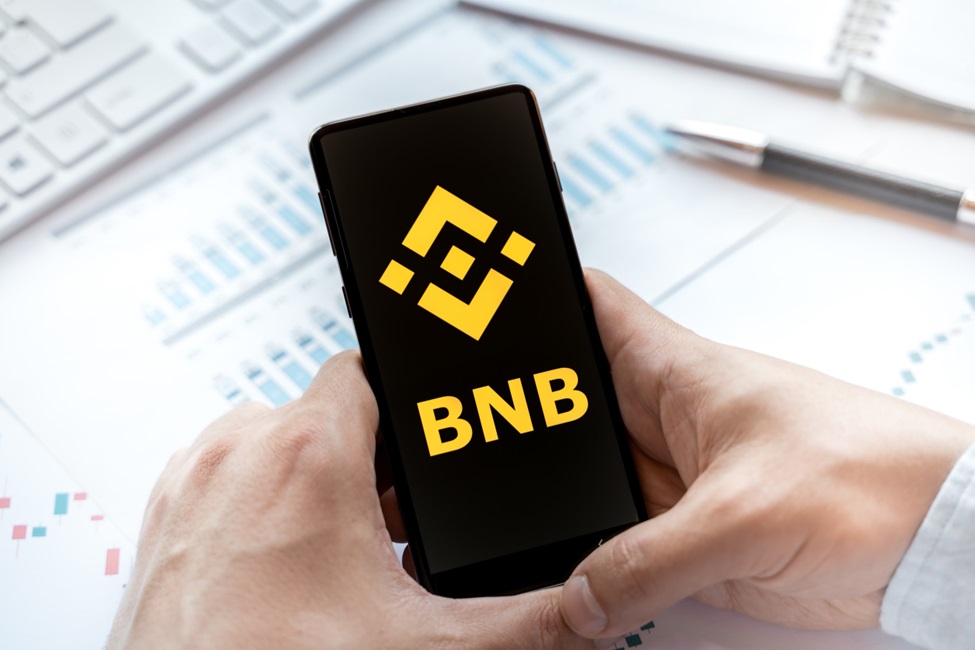BNB Chain Hits $10B On-Chain Daily Volume Milestone


The BNB Chain ecosystem has surged to new heights, recording over $10 billion in on-chain trading volume in the past 24 hours as of October 8, 2025.
This marks a significant shift in the memecoin and DeFi landscape, with the chain outpacing competitors like Solana in key metrics. Driving this activity is a boom in new token launches—over 35,000 in the last day alone—fueled by Binance’s Alpha program, which funnels early-stage projects to BNB Chain for seamless on-chain trading.
Platforms like PancakeSwap and the emerging Aster DEX have seen explosive growth, with Aster alone contributing $200 billion in monthly volume and $7.2 million in daily revenue. This volume spike aligns with broader network momentum.
Register for Tekedia Mini-MBA edition 18 (Sep 15 – Dec 6, 2025): registration continues.
Tekedia AI in Business Masterclass opens registrations.
Join Tekedia Capital Syndicate and co-invest in great global startups.
Register for Tekedia AI Lab: From Technical Design to Deployment.
BNB Chain processed 52.5 million active addresses in September, reclaiming the top spot for user engagement. The BNB token itself has rallied 80% in the last three months, flipping XRP to become the third-largest cryptocurrency by market cap at around $183 billion, with its price hovering above $1,300.
Higher throughput is accelerating BNB’s deflationary burn mechanism, tightening supply and supporting price stability amid the frenzy. On X, traders are buzzing about the shift, with posts highlighting how BNB’s low fees and integrations like Chainlink oracles are drawing memecoin liquidity away from Solana and Base.
One analyst noted: “BNB memecoin szn is real,” pointing to over 100,000 traders profiting from new launches. If this trend holds, BNB Chain could solidify its position as the go-to for high-volume, low-cost on-chain activity.
Bitwise Amends Solana ETF Filing to Include Staking, Sets Ultra-Low 0.20% Fee
In a competitive push ahead of potential SEC approval, Bitwise Asset Management updated its spot Solana ETF filing on October 8, 2025, renaming it the “Bitwise Solana Staking ETF” and incorporating staking to generate yield for investors.

The fund will stake SOL holdings to earn rewards typically 7-8% annually, passing them through to shareholders while maintaining exposure to Solana’s price. To sweeten the deal, Bitwise set a management fee of just 0.20%—matching its Bitcoin and Ethereum ETFs—and waived it entirely for the first three months or until $1 billion in assets is reached.
This move follows similar updates from 21Shares adding staking to its Ethereum ETF and comes amid a “fee war” reminiscent of the 2024 Bitcoin ETF launches, where low costs drove massive inflows.
Bloomberg ETF analysts called it aggressive: “Bitwise not playing around,” predicting strong institutional uptake due to the yield edge over non-staking products. With over 16 Solana ETF proposals pending including from Grayscale, VanEck, and Fidelity, the SEC’s October 10 deadline looms—though a U.S. government shutdown may delay final reviews.

If approved, staking could differentiate these ETFs, potentially unlocking billions in inflows and boosting SOL’s price, which recently hit $227. This signals a maturing U.S. crypto market, where funds evolve from pure price trackers to yield-bearing vehicles.
The ecosystem’s ability to handle 35,000+ new token launches daily signals robust infrastructure, potentially making BNB Chain the default hub for speculative and high-volume trading.
With BNB’s price above $1,300 and a market cap of $183 billion, the high throughput accelerates its deflationary burn mechanism, reducing token supply and potentially supporting further price appreciation. This could draw more institutional and retail investors, reinforcing BNB’s position as the third-largest cryptocurrency.
The 52.5 million active addresses in September highlight unmatched user engagement, likely fueled by Binance’s Alpha program funneling projects to BNB Chain. This creates a virtuous cycle: more projects attract more users, which in turn draws more developers.
Adding staking to Bitwise’s Solana ETF, with a low 0.20% fee and a three-month fee waiver, positions it as a compelling product for institutional investors seeking yield 7-8% annually alongside SOL price exposure.
The ultra-low fee and staking inclusion intensify the ETF “fee war,” forcing competitors like Grayscale and VanEck to lower costs or add features. This benefits investors but squeezes profit margins for issuers, potentially consolidating the market around a few dominant players like Bitwise.
Approval of a staking ETF could boost SOL’s price currently $227 by increasing demand and locking up supply through staking. This might also incentivize more validator participation, enhancing Solana’s network security and decentralization, though it risks centralizing staking power with large ETF holders.
The SEC’s October 10, 2025, deadline is critical, but a potential U.S. government shutdown could delay approvals, creating uncertainty. If approved, staking ETFs could set a precedent for other yield-bearing crypto products, reshaping the U.S. crypto investment landscape.
While BNB Chain dominates on-chain volume, Solana’s ETF progress could restore its institutional appeal. Staking yields provide a narrative edge over non-yielding assets, potentially countering BNB’s memecoin-driven momentum. However, Solana must maintain technical reliability to capitalize on this.
Both developments signal a maturing crypto market, with BNB Chain’s volume showcasing DeFi’s retail-driven growth and Solana’s ETF push highlighting institutional integration. This dual track could broaden crypto adoption but also widen the gap between speculative and regulated markets.




